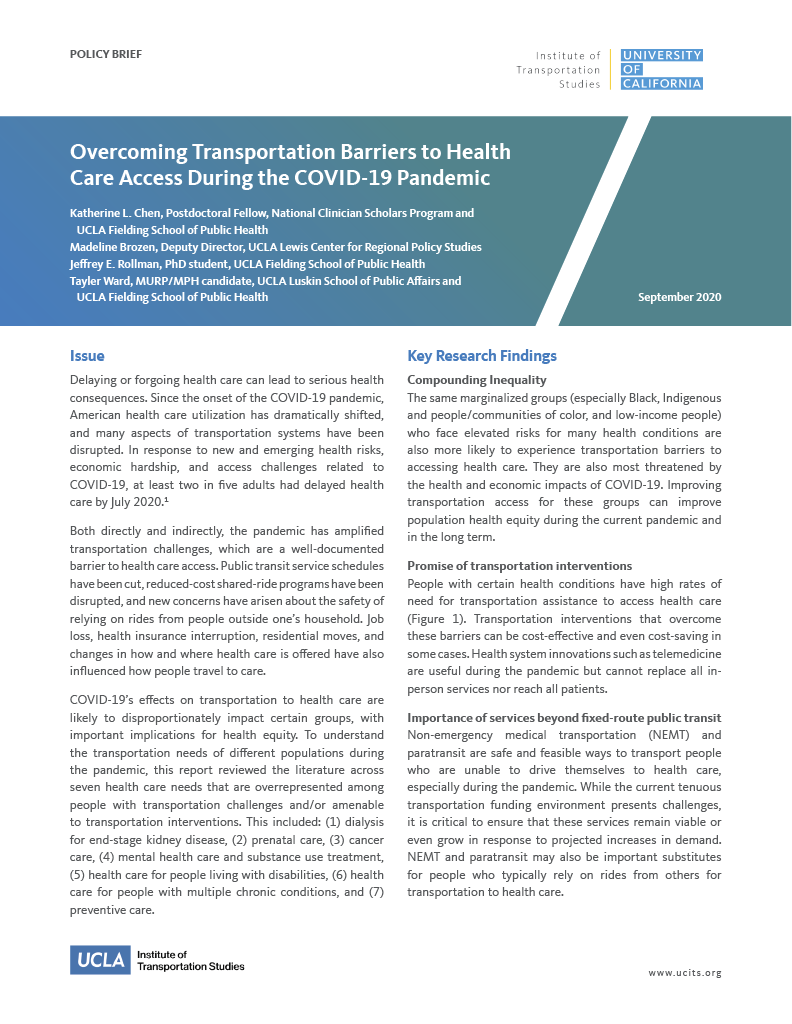Date: September 1, 2020
Author(s): Madeline Brozen, Jeffrey E. Rollman, Tyler Ward, Katherine Chen
Abstract
At least two in five adults had delayed health care by July 2020. Both directly and indirectly, the pandemic has amplified transportation challenges, which are a well-documented barrier to health care access. Public transit service schedules have been cut, reduced-cost shared-ride programs have been disrupted, and new concerns have arisen about the safety of relying on rides from people outside one’s household. Job loss, health insurance interruption, residential moves, and changes in how and where health care is offered have also influenced how people travel to care. COVID-19’s effects on transportation to health care are likely to disproportionately impact certain groups, with important implications for health equity. To understand the transportation needs of different populations during the pandemic, this report reviewed the literature across seven health care needs that are overrepresented among people with transportation challenges and/or amenable to transportation interventions. This included: (1) dialysis for end-stage kidney disease, (2) prenatal care, (3) cancer care, (4) mental health care and substance use treatment, (5) health care for people living with disabilities, (6) health care for people with multiple chronic conditions, and (7) preventive care.
About the Project
Access to in-person medical care is critical for high risk patients, such as those who are pregnant or suffering from certain end-stage diseases. The COVID-19 pandemic has profoundly impacted medical care access, in part due to transportation system disruptions.


